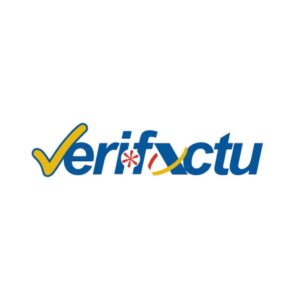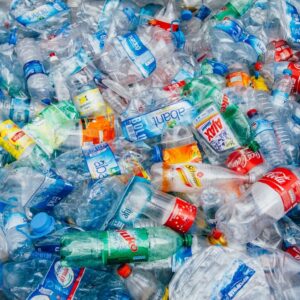Marketing Comunicación i3s
Reducing plastic waste and improving plastic waste management is a priority objective of the EU. In fact, in 2018 the first european strategy on plastics as a decisive part of the transition to a more circular economy. This strategy aims to defend citizens and the planet, and to empower companies to take on a new way of doing things by reducing plastics.
The plastic tax is one of the measures introduced by the vast regulation that has been articulated in this regard.
Every year, Europeans generate 25 million tons of plastic waste, but less than 30% is collected for recycling. Worldwide, plastic accounts for 85% of the waste on beaches. Not only that. Plastics find their way onto our plates and into our bodies, in the form of microplastics that inundate everything, with unknown effects on our health.
What is the plastic tax?
The plastic tax in Spain is a fiscal measure with clear environmental objectives: to encourage reuse, reduce waste generation and promote sustainability. This obligation falls especially on companies that manufacture or use non-reusable plastic packaging, which must implement accurate traceability, control and reporting processes.
The plastic tax in Spain responds to a growing concern regarding the excessive use of single-use plastics, which has led the European Union and its Member States to design fiscal policies that discourage their use and promote circular economy models.
In this context, the excise tax on non-reusable plastic packaging in Spain, commonly known as the “plastic tax”, has been introduced in the United States. plastic taxis a tool to reduce their consumption and environmental impact. The excise tax on non-reusable plastic packaging is an indirect tax currently levied on the use of single-use plastics.
What legislation regulates the plastic tax in Spain?
The Directive (EU) 2019/904 on single-use plastic products establishes that Member States must implement reduction measures, bans and extended producer responsibility (EPR) systems, to which Spain has adhered through Law 7/2022.
The plastic taxis, in fact, regulated by Law 7/2022, of April 8 Law 7/2022 of April 8, 2002 on waste and contaminated soils for a circular economy.in force as of January 1, 2023. And its regulatory development is detailed in the Royal Decree 1055/2022, of December 27, regulating packaging and packaging waste..
The main objective of this measure is to reduce the environmental impact of plastic by:
- Incentives for the prevention of packaging waste.
- Promotion of the use of recyclable or reusable materials.
- Promotion of the circular economy.
- Discouraging the use of single-use plastics, in line with the European Plastics Strategy and the European Green Pact.


How does this tax work and what type of companies does it affect?
The plastic tax is levied on the amount of non-recycled plastic contained in products subject to the tax, with a tax rate of 0.45 euros per kilogram of non-recycled plastic.
This tax mainly affects companies that manufacture, import or intra-community purchase of non-reusable plastic products, such as:
- Producers and distributors of single-use plastic containers.
- Importers of packaged products. Logistics or industrial companies using non-reusable plastic packaging (such as film, shrink-wrapped pallets, etc.).
Reusable products are excluded from the tax, as well as those containing recycled plastic in its entirety, duly certified.
Why is it useful to use an SAP solution for plastic tax management?
Regulatory compliance with the plastics tax requires precision in the traceability, calculation and documentary justification of taxable or exempt packaging. In this context, technological platforms such as SAP offer a comprehensive and highly efficient solution for plastics tax management.
Advantages of using SAP for plastics tax management through SAP Responsible Design and Production (SAP RDP):
Full traceability of materialsTotal material traceability: Allows the identification and traceability of non-recycled plastic content in products or packaging, integrating this information with purchasing, production and logistics systems.
- Automation of the tax calculationAutomatically calculates the corresponding tax according to the weight of non-recycled plastic and the current tax rate.
- Document management and certificationThe system can store and associate recycled content certificates, necessary to justify tax exemptions.
- Accounting and tax integrationFacilitates the accounting registration of the tax, its settlement with the settlement with the Tax Agency and the generation of compliance reports.
- Regulatory adaptabilityThe SAP system is constantly updated in the face of regulatory changes, ensuring legal compliance and reducing the risk of sanctions.
- Sustainability and ESGIntegration with sustainability modules allows the environmental impact of plastic to be included in corporate ESG reports.
In short, the SAP solution facilitates efficient, transparent and compliant management of the plastics tax, turning a tax obligation into an opportunity to move towards more sustainable business models. opportunity to move towards more sustainable business models..
Why do the EU and Spain continue to take measures to reduce plastic in the market?
The decision to implement fiscal and regulatory measures against single-use plastic responds to an environmental and health urgency, supported by alarming pollution figures and its long-term impacts:
- Plastic accounts for 80-85 % of marine litter, according to the European Parliament (2021 Report).
- It is estimated that between 8 and 12 million tons of plastic are dumped into the oceans each year, affecting more than 800 marine species (UNEP, 2021).
- Less than 30% of plastic waste in Europe is recycled, resulting in an increasing volume of landfill and incineration (Eurostat, 2022).
- Global plastic production has exceeded 390 million tons per year and continues to increase (PlasticsEurope, 2023).
- Plastic can fragment into microplastics, which have already been detected in food, drinking water and even human blood (Nature Sustainability, 2022).
In this context, technological solutions such as SAP are positioned as key allies, by enabling automated, efficient management aligned with current regulations, in addition to offering added value in terms of corporate social responsibility and compliance with ESG criteria.
Reducing the use of plastics is not only a legal requirement, but an ethical and business imperative in the face of a global environmental crisis. In fact, it is an ethical and business imperative in the face of a global environmental crisis, increased regulation is expected that make companies responsible for the product life cycle. Therefore, solutions such as the one mentioned for the management of the plastic tax not only result in a lower risk of suffering sanctions, but also avoid reputational crises and complications in commercial relations with suppliers, partners, etc.
Marketing and Communication i3s





